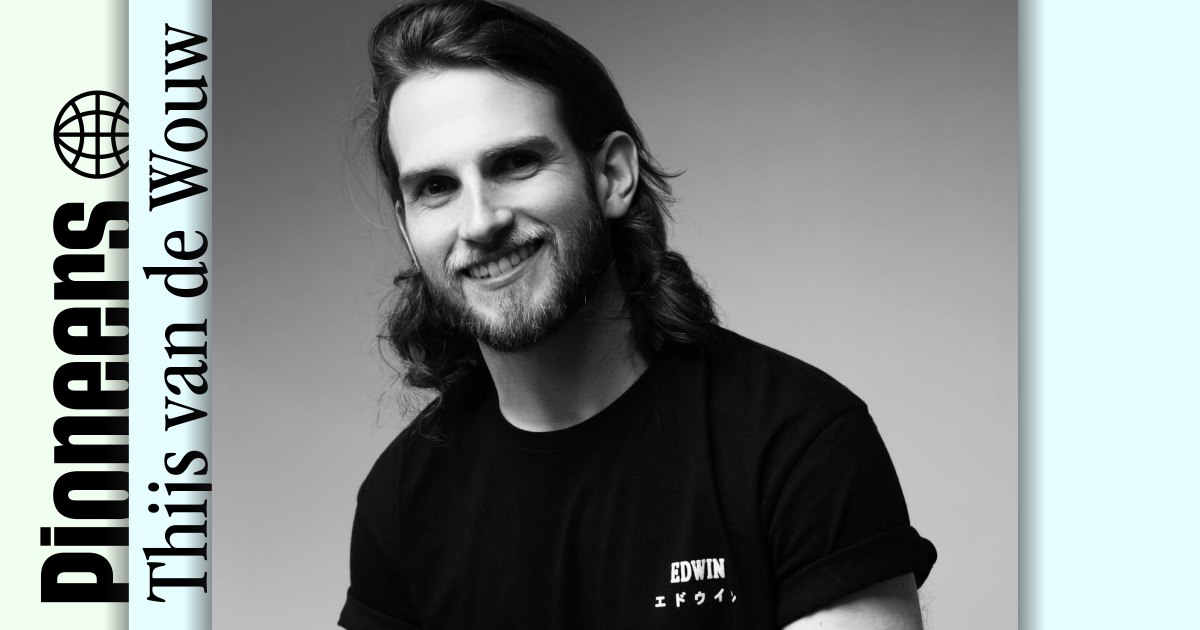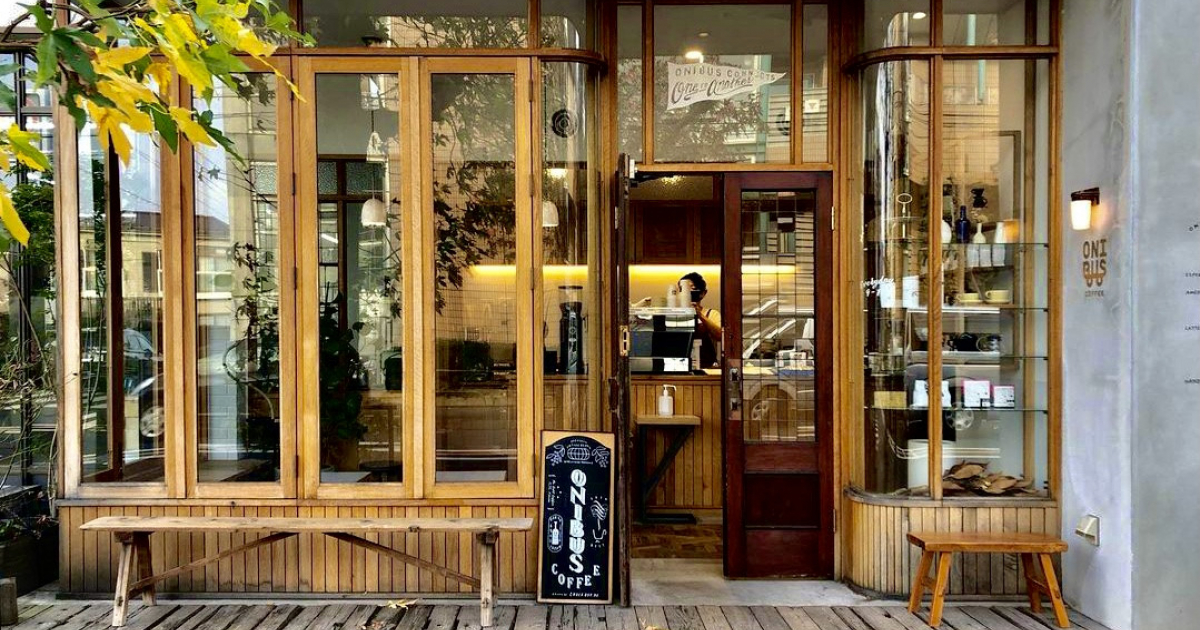Our Pioneer in Tokyo, Japan: Thijs van de Wouw

Our Pioneer in Tokyo, Japan: Thijs van de Wouw
Thijs van de Wouw is Strategic Planning Director of Wieden + Kennedy in Tokyo, where he works for clients in both Japan and Korea, including Nike, Audi, IKEA, Netflix, among others. Before moving to Tokyo, Thijs was at Droga5 in New York. He is featured in Forbes 30 under 30 and also writes for Campaign Magazine, Adweek and Highsnobiety. We talked to him about his journey to Tokyo and what brought him to where he is today.
How did you end up in Tokyo? What drove you?
I've been fortunate to have lived in many different places and cultures; from Amsterdam to Denmark, Sydney, San Francisco, New York, and now Tokyo. It is kind of insane when you think about it. But it also kind of captures my personality: I like taking big risks, dreaming big, and going for it. I love learning new things and putting myself out there. I think as a planner you kind of need that never-ending curiosity for things.
The beauty of living in different places is that each place changes you. You will always have your fundamental value belief system, but you can add things that you learned, and that are important to you. New York taught me to ‘think fast’, ‘roll up your sleeves’ and ‘get shit done’. I’ve always loved that quote from Mayor Ed Koch: ‘You have to live here for six months, and if at the end of the six months you find you walk faster, talk faster, think faster, you’re a New Yorker.’ To me that is what you learn in New York: to be on top of things and chase what you want. Tokyo on the other hand taught me to be more considerate of others, to adapt to different situations, and cherish the little things in life.
I loved New York and I didn't think I'd leave, but living in Japan was always a dream for me. I love video games, Hayao Miyazaki’s movies, Ryuichi Sakamoto's music, and I watched a lot of anime such as Naruto, One Piece, and Hunter X Hunter when I was young. Three years ago I visited Japan for the first time and fell in love with the country like no other place ever made me feel. The moment Wieden+Kennedy asked me to come to Tokyo, I didn't think twice. My biggest adventure was about to begin.

What makes you feel at home?
I have been getting questions from people interested in my story and saying, ‘I’ve been following you for a while, and want to make the move abroad too, but only for 6 months or so’. I often say it’s really difficult to find opportunities like that and you might need to think longer-term. It takes a while to settle into a country, build trust within a company, and understand the culture.
It’s more difficult to feel at home in Asia, but Tokyo is becoming more of a home than the USA was. Learning Japanese has helped me a lot, and it has been by far the most rewarding activity I've taken on in Japan. I have this rule that every weekend, I bring my Japanese books and I go to a coffee shop I’ve never been to. There is nothing that makes me happier than interacting with strangers and hearing their stories.


What stands out the most there (professionally)?
Japan is such a unique place and many clichés are true: hundreds of people crossing from left to right at Shibuya Crossing, the neon lights, the kawaii (cute) culture, the cat cafes, and so on.
But there is way more to Japan than that. For me, if there is one thing that stands out, it’s the deep appreciation for things. For example, when my wooden table was delivered to my house, it had a huge crack. In the west, you'd throw it away and demand a replacement, but in Japan, there is this belief that everything has a soul. The mover told me 'the crack is part of the table now'. I still have that table today.
This idea of appreciation is more prevalent in the expressions we use every day. When you leave the office you say おつかれさまでした otsukaresamadeshita, which is acknowledging and appreciating someone or everyone’s hard work that day. Another example is いただきます itadakimasu, which is a common word to express gratitude before you eat a meal. You are not only thanking the chef at the restaurant, but everything that contributed to the meal. This could be the farmers, fishers, or even the rain and sunshine that made the vegetables grow. When you leave the restaurant or finished your meal, you say ごちそうさまでした gochisosamadeshita, which means ‘thank you for the effort for preparing such a wonderful meal’. You might think ‘isn’t that a bit unnecessary to say these things all the time?’ but it adds up to your overall happiness, and it makes you appreciate things more.


What inspires you as a professional?
As a tourist, you might have not noticed, but every station has its own jingle. They were originally created to tackle the problem of stress - which is ironic when you think about it. They are really fun and quite joyful. The one from Ebisu Station is really interesting. The jingle is also used for an advert for Ebisu beer. As a marketer, I think it’s quite brilliant, because every person who stands on that train platform and hears it on their way home, might get triggered to think about that beer. For me, it's a reminder that advertising and marketing isn't just a film, social post, or digital activation anymore. It can be anything.

Can you talk about a radical, outstanding piece of work you've seen or worked on?
Last week, we launched The Future Isn't Waiting for Nike. The film is based on the testimonials of real athletes who, like many young people today, struggle to feel accepted for who they are. It spotlights the story of three teenage girls who experience discrimination and bullying in Japan, which is a big issue here. They overcome together their struggles finding unity, confidence, and joy through sport. The film was viewed over 30 million times in just four days and sparked a hot debate. Discrimination and bullying is a global issue and it exists around the world, but the reason why we are so proud of this work is that for the first time, these issues are so openly discussed in Japan.
What ‘souvenir’ would you bring home?
I have a love and hate relationship with this, but I think it would be my Hanko. It's a personal signature tool that dates back centuries, with your name in Japanese. When you move here it's the first thing you need to get, to set up a bank account, sign a lease, or anything else that would require your signature. I cursed more at it than any other thing in Japan (as there is no way around it if you forget it), but the government is about to break with its age-old tradition, so I probably should cherish it a bit more.

